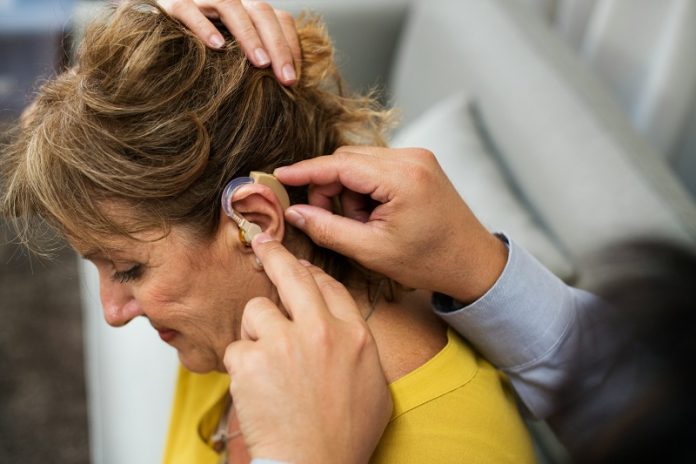
A new study has shown that hearing aids and cochlear implants don’t just improve hearing—they also help people feel more socially connected and less alone.
The research, led by Dr. Janet Choi from the USC Caruso Department of Otolaryngology – Head and Neck Surgery, looked at how hearing devices affect the social lives of adults with hearing loss.
The results were published in JAMA Otolaryngology – Head & Neck Surgery and suggest that treating hearing loss could play an important role in maintaining overall health and happiness.
Hearing loss is a common problem, affecting around 40 million adults in the United States. Yet many people don’t seek treatment.
Untreated hearing loss can make it harder to talk with others, leading to frustration and, over time, withdrawal from social activities.
People with hearing loss often avoid conversations or gatherings because they struggle to follow what’s being said, especially in noisy settings. This can cause feelings of loneliness, anxiety, and depression.
Over the long term, social isolation may even affect brain health. Previous research has shown that being socially disconnected can lead to mental decline, including a higher risk of dementia.
Brain scans have also found changes in people who are isolated, such as more inflammation and shifts in brain structure. But until now, it wasn’t clear whether hearing devices could help reverse this kind of isolation.
To better understand the connection, Dr. Choi and her team reviewed 65 previously published studies involving over 5,000 adults. They focused on three key areas: social quality of life, feelings of social limitation or frustration due to hearing loss (called perceived social handicap), and loneliness.
They found that adults who used hearing aids or cochlear implants felt more comfortable in social situations. These devices helped them join in group conversations, speak more confidently in noisy environments, and feel more included.
Users reported fewer obstacles during social interactions and felt less embarrassed or excluded. This increased confidence made it easier for them to stay in touch with family, friends, and coworkers.
The study also showed that people with cochlear implants—devices surgically placed to help those with severe hearing loss—experienced the most improvement in their social quality of life. That’s likely because cochlear implants provide more significant hearing improvement than hearing aids, especially for people with major hearing problems.
There was also some evidence that hearing devices might reduce feelings of loneliness, though more studies are needed to confirm this. Still, the overall results suggest that better hearing leads to better social lives—and possibly even better brain health.
Dr. Choi noted that the study didn’t directly measure whether improved social lives lead to better memory or thinking. However, previous research has found that staying socially active helps protect the brain.
“By restoring clearer communication, hearing devices may help preserve cognitive health by keeping the brain more actively involved and people more connected,” she explained.
This research builds on a previous study published in January 2024, also led by Dr. Choi, which found that adults with hearing loss who used hearing aids had a nearly 25% lower risk of dying early. Together, the two studies suggest that hearing devices may do more than improve hearing—they may help people live longer, happier, and more connected lives.
Dr. Choi hopes these results will encourage more people to treat their hearing loss. “Hearing health is closely tied to overall well-being,” she said. “We want to help people understand that using hearing aids or cochlear implants isn’t just about hearing better—it’s about living better.”
If you care about hearing health, please read studies about antibiotic drug that can lead to hearing loss, and whether you should get an hearing aid or see a specialist.
For more health information, please read studies about how the Mediterranean diet could protect your brain health, and these antioxidants could help reduce dementia risk.
The research findings can be found in JAMA Otolaryngology – Head & Neck Surgery.
Copyright © 2025 Knowridge Science Report. All rights reserved.



